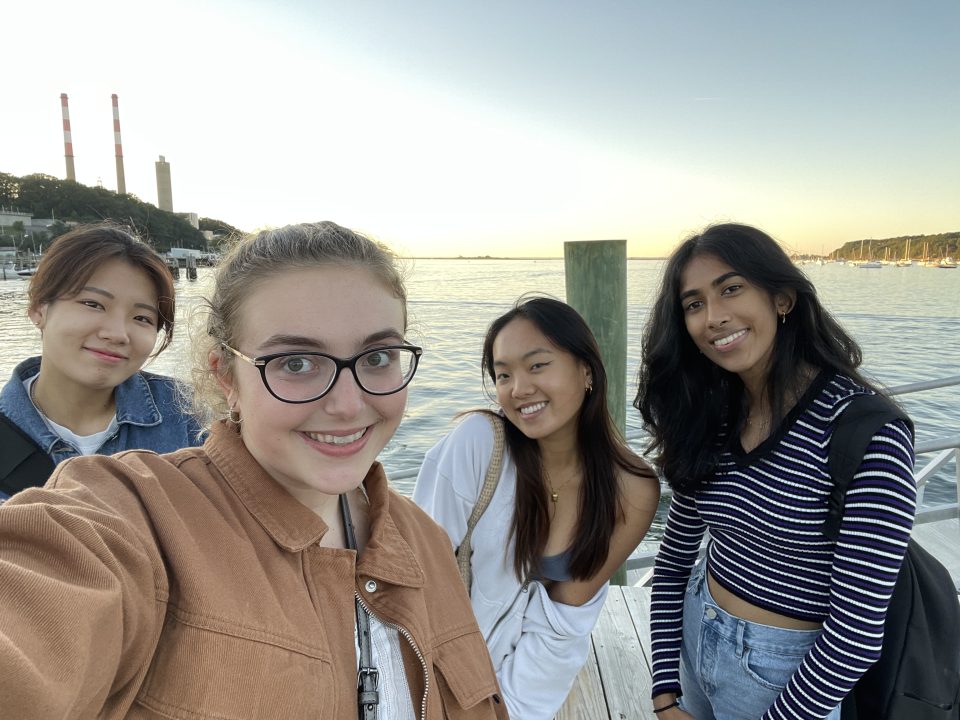
As a college freshman, I entered the year with soaring expectations for the quintessential college experience. I longed for new friends, a perfect roommate, the parties I had missed out on in high school. I hoped for frequent adventures and an eccentric nightlife, a light schedule and a mind free of stress. Through the hardships of my first semester — including a panic attack on a sorority bathroom floor — I’ve come to understand that a flawless execution of my goals was unlikely.
During the first week of school, my roommate announced that she’d be moving out in the following days. While disappointed, I didn’t take it personally, because it had been the first conversation we had had with each other. Nonetheless, I made an effort to connect with her as best I could, leaving time at night to inquire about her social anxiety and her deep attachment to her dog left behind in pursuit of an education. In those few days, I made something of a friend, but instead of perpetuating that roommate bond I had longed for, I watched her side of the room empty of its decor just as quickly as it was hung.
Her departure preceded the end of Welcome Week, which was especially hard to partake in without any company; I struggled to have meals alone, and to attend events without the presence of a friend. Not having much to do or anyone to talk to, I slept early and rose early, starting each day at the break of dawn. Getting ready in the communal bathrooms at six o’clock one morning, I ran into another girl who conversed with me about the scattered piercings on her ears. I complimented her hair and jewelry, and just before exiting, she invited me to join an event with her and her friends. I learned that she resided in the room directly beside my own.
By the end of the week, I was lucky enough to have earned a place in a small but comfortable friend group. Around this time my second roommate settled in, and although it seemed she was there to stay, we struggled to connect as well. Having come from a broken home, she was quiet and seemed to shut out the world around her. And so we spoke rarely and briefly, and it became a dynamic that we came to terms with in order to live together. In the next few weeks, following her mother’s tragic passing, she too had moved out and left college to work on herself. I wouldn’t get another roommate for months.
Yet, I was incredibly grateful for the friends I had made. For a long time, it seemed ideal, and almost mirrored the utopian figment I’d imagined. We spent most of our time in each other’s company, together experiencing a fair share of parties and adventures, never having to worry about eating alone or cutting a night short. Within a few months, I grew comfortable defining myself by my place within this group. I felt as though I had achieved what I longed for, that I had etched myself into a permanent fantasy.
But as the second semester rolled around, the cracks in my utopia revealed themselves. I watched my friends grow closer with each other, oftentimes leaving me to experience the bitter feeling of exclusion. Parties became increasingly difficult to enjoy amid piercing social anxiety, and my grades progressively plummeted since the beginning of my excursion to college. I was lost in the downfall of my ideals, unsure of the causes behind the sharp decline in satisfaction. I felt shunned by those around me, and unwilling to attend social events, yet still dreading the thought of isolation.
In meditation during one yoga class, I lay with my thoughts — ones that had been intrusive and scattered for days. I thought about my time in college and how forcibly living up to my own illogical expectations was perhaps evoking the opposite result. I thought about how chasing perfection — chasing an unattainable sense of ideality — was absurd, and worked to create an implausible standard of living. Having unrealistically high expectations teaches one to remain in a constant state of longing and dissatisfaction, whereas learning to appreciate the flaws in a moment teaches one gratitude.
The best part of my first year in college was not the nightlife or the ideal relationships, but the acceptance of balance in my life. It was just as much coming to terms with my own individuality as it was meeting others. It was appreciating a moment of silence after a night out, and it was working to raise my grades amid social events. It was also learning to appreciate eating a meal alone when others were busy. The best part of my early college experience was letting go of incessant desire and unhealthy expectations. My only advice for newcomers is to practice gratitude, even amid inevitable misfortune.


















